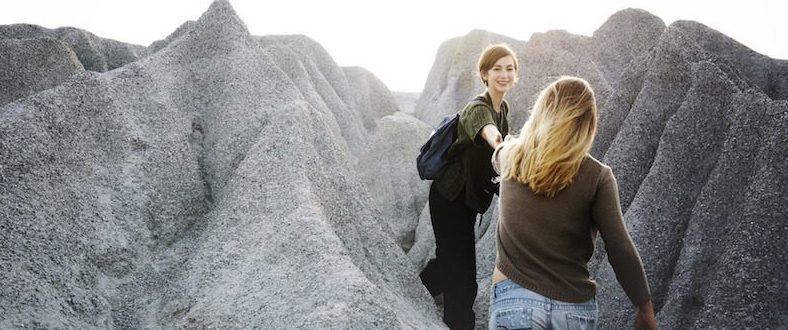What does losing your virginity mean for a lesbian?
When I was first in college, gathered with my friends over cheap beer and pepperoni pizza, the conversation often turned to “our first time.” No one went into too much salacious detail, but we were all interested in knowing who had done what with whom. Partly I think we were gauging our own progress, but we were also just curious about relationships in general and it helped to us to normalize sex and sexuality. All through high school in the mid- to late 1960s, this wasn’t something we discussed openly, so being able to talk about it now that we were “older” was also freeing. Still, I was often very quiet during these chats because I had yet to sleep with anyone. When I finally did, it was a woman, and that story of my first time became one I have told many times over the last nearly 50 years.
The story itself isn’t all that remarkable.
We flirted with each other for a couple of weeks, and finally kissed during an episode of The Bob Newhart Show on a warm spring night. She had been with a woman before, but I hadn’t. I’d dreamed of it a million times, but I never imagined I would ever get to actually do it. Before this, in my grim view of the world ahead of me, I would find a nice man to marry and be secretly unhappy for the rest of my life. My first-time story meant that it was possible I might be wrong.
I’ve recounted my story dozens of times in the nearly 50 years since that night, often to other lesbians or those who think they might be. There is power in hearing the story of how we each got the courage to let ourselves be our true selves. In part, we bolster each other, but it also serves to remind us that this freedom is something we can never take for granted.
One of my favorite conversations is with young women who are considering coming out and who ask me for advice. How do I tell my parents? What if my friends reject me? How will this change my identity in the world? When I tell them my story, I’m telling them about more than that first fun night with another woman. What I’m really sharing is how I got to the breaking point where it was no longer serving me to remain in the closet. When I tell them about getting to love a woman for the first time, I’m really telling them about how I survived, and ultimately how I thrived. When I tell my story to straight people, it’s the first time many of them have considered what it was like growing up feeling like an outcast.
Years ago, I drove to a conference with a colleague I didn’t know well. As an African American woman, she had her own account of feeling like an outsider, someone who had been looked down upon by the majority of people she encountered every day. Although we grew up around the same time, neither of us imagined that someone not like us could have had a similar experience. Telling our stories helped each of us to understand the other and ourselves. We ended up realizing we had much more in common than either of us would have guessed.
More than anything, gay people telling their stories reminds all of us that, though times may have changed, it wasn’t that long ago that many of us kept our personal lives a secret. Our fears of losing our families, our jobs, the respect of our communities, and the love of friends kept us hidden. That moment when we decided to honor our own truths before following the rules of a bigoted society is one we need to remember, and it’s one we need to share with others.
Telling your story is fun. There is nothing like the thrill of that first kiss with someone who loved you back for the first time. But more than that, telling your personal story is part of our history as a community, part of a time we want to remember so we don’t let it happen again.
